-
পরবাস
বাংলা ভাষা, সাহিত্য ও সংস্কৃতি
Parabaas, a Bengali webzine since 1997 ... ISSN 1563-8685 -
ছোটদের পরবাস
Satyajit Ray
Rabindranath Tagore
Buddhadeva Bose
Jibanananda Das
Shakti Chattopadhyay
সাক্ষাৎকার -
English
Written in English
Book Reviews
Memoirs
Essays
Translated into English
Stories
Poems
Essays
Memoirs
Novels
Plays
-

পুত্রবধূর চোখে গৌরী আইয়ুব এবং প্রসঙ্গত
-

বিশ্বের ইতিহাসে হুগলি নদী
-

বেদখল ও অন্যান্য গল্প
-

Audiobook
Looking For An Address
Nabaneeta Dev Sen
Available on Amazon, Spotify, Google Play, Apple Books and other platforms.
-

পরবাস গল্প সংকলন-
নির্বাচন ও সম্পাদনা:
সিদ্ধার্থ মুখোপাধ্যায়)
Parabaas | Essay
- Category: Essay, Language: All LanguagesEnglish Articles | All Articles
- 12(1 to 40 of total 79)
- 12(1 to 40 of total 79)
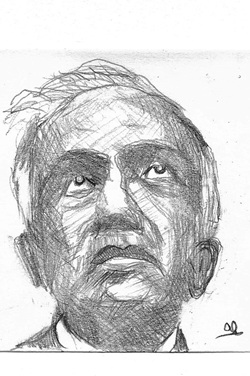
A Conversation With Chandra: Advice to a young scientist - Amitabha Sen
English | Essay | January 2026Conversation with noted physicist S. Chandrasekhar
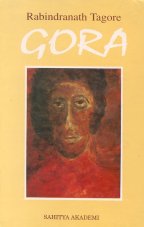
Tagore in Gora - Indranil Dasgupta translated by Chhanda Chattopadhyay Bewtra
Rabindranath Tagore | Essay | July 2022Gora is not just a soap opera. For one thing, no one takes the trouble to present a significant idea in a soap opera. Much of what Tagore wanted to say through Gora is also seen in the story of his own life. Written by a great poet, Gora is not only exceptional for its outstanding use of language but also for a vitality and ambition which, like Tagore himself, is unparalleled in Bengali literature. An indefatigable

'Atmavilap' or Lament of Myself - Clinton B. Seely
Translation | Essay | January 2021"My intent, when I began to think about this short presentation for the North American Bengali Conference, was to search for and bring to light any possible links between Michael Madhusudan Datta and the United States of America....: In this essay, Prof. Seely also includes a translation of Michael's Atmavilap.

Tagore's Unfinished Experiment - Nandan Datta
Rabindranath Tagore | Essay | September 2019Over a life of 80 years, Rabindranath Tagore (1861-1941) wrote poems, plays, novels, short stories, essays, travelogues; composed songs by setting his own lyrics to tune and created musicals that combined song, dance, and drama...
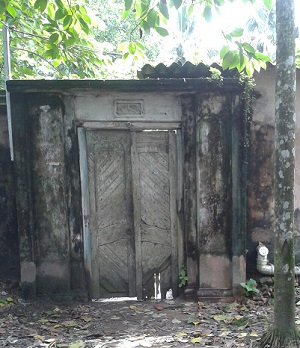
Who is Abani, at whose house, and why is he even there? - Samir Sengupta translated by Bhaswati Ghosh
Shakti Chattopadhyay | Essay | August 2017I never got to know Shakti Chattopadhyay in person. Until the other day, I didn’t even know who he was. I’m a villager and make my living by growing potatoes and gourds. This year I planted tomatoes and chili peppers — the tomatoes did really well, I got about two and a half quintals per katha (720 square feet) ...
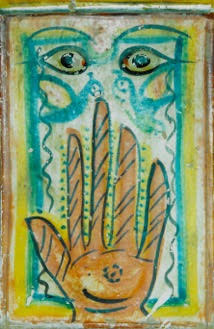
A Few Sentences on Translating Tagore’s “Shasti” (A Translator’s Punishment) - Carolyn B. Brown
Rabindranath Tagore | Essay | May 2016Why have I translated the title of Rabindranath Tagore’s “শাস্তি” (Shasti) as “Sentence,” when everyone else translates it as “Punishment”? Well, to begin with ...

Tagore’s play RAJA for Global Audience - Debashish Raychaudhuri
Rabindranath Tagore | Essay | May 2016April is the month of theatre. April is the month of Shakespeare. This year the world celebrates the 400th death anniversary of the immortal bard of England who is synonymous with theatre in the English speaking world and even.. ..

Tagore’s Sense of Wonder in Indonesia: Rereading his Letters from a Traveller to Java - Amiya Dev
Rabindranath Tagore | Essay | May 2015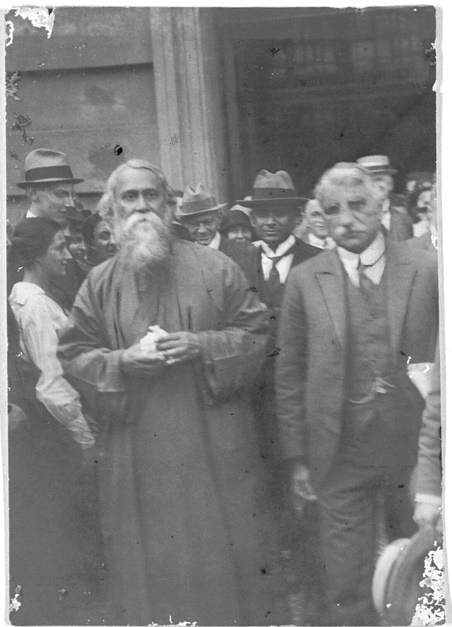
Rabindranath Tagore (1861-1941) A Biographical Sketch - Uma Dasgupta
Rabindranath Tagore | Essay | February 2015Rabindranath Tagore was born in 1861. He belonged to a remarkable family. They traced their connection as far back to the end of the seventeenth century with the area now occupied by Calcutta, India.

Wanderlust: Travels of the Tagore Family - Debendranath Tagore, Jnanadanandini Devi, Rabindranath Tagore, Abanindranath Tagore et.al. translated by Somdatta Mandal
Rabindranath Tagore | Essay | May 2013The following section offers vignettes of travel undertaken by five members of the Tagore household (known in common parlance as the Jorasanko Thakurbari). The places visited are often not that significant as are the purpose and experiences narrated in each of these pieces.
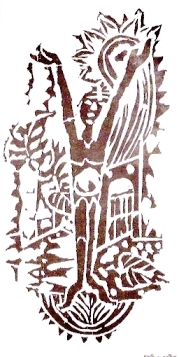
Shakti's Singing - Samir Sengupta translated by Bhaswati Ghosh
Shakti Chattopadhyay | Essay | April 2013These days, scholars squinch whenever one relates an anecdote about Shakti Chattopadhyay. They say there isn’t as much discussion on Shakti’s poetry as on his life—this is tantamount to insulting the poet and trivializing poetry. ...
Understanding Jibanananda’s Different Poetic Sensibility - Arunima Ray
Jibanananda Das | Essay | November 2012Jibanananda Das’s poetry has the power to transport one to the obscure region of one’s being and sensibility beyond the everyday bounds of sense and reason.

A Casa e O Mundo: Telo de Mascarenhas’s Translation of Ghare Baire - Sovon Sanyal
Rabindranath Tagore | Essay | May 2012When Ghare Baire was written in serial form (between May 1915 to February 1916), Tagore had already gone through some serious deliberation over the questions about patriotism and nationalism.
Conceptual development of Tagore's short stories - Rabin Pal
Rabindranath Tagore | Essay | May 2012During the celebration of Tagore's seventieth Birthday, in 1931, a number of famous fiction writers (such as John Bojer, Theodore Dreiser, Andre Gide, Knut Hamsun, Hermann Hesse, Selma Lagerlof, Sinclair Lewis, Thomas Mann ...
I/We/They - Sourin Bhattacharya
Rabindranath Tagore | Essay | April 2012Society is a collective, composed of individual members. As entity the collective is different from its members. The society, therefore, cannot be identified with its members; nor the members, taken individually or collectively, can be identified with the society.

Buro Angla and Nils: A Tale of Transmigration of Stories - Chhanda Chakraborti
Translation | Essay | November 2011What is the connection between Swedish Nils and Bengali Ridoy? How exactly did this book arrive in the hands of Abanindranath, and what or who prompted him to tell the story in Bangla imbuing it with...
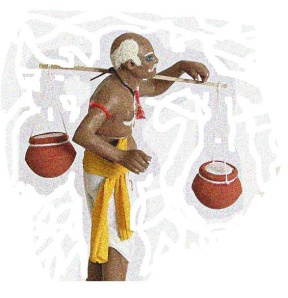
Freedom in Tagore's Plays - Bhaswati Ghosh
Rabindranath Tagore | Essay | May 2011At various stages in his life, enriched by ever new experiences—both mystical and material—Tagore celebrates a sense of liberation. In all the genres of his literary oeuvre, the subject of freedom appears...
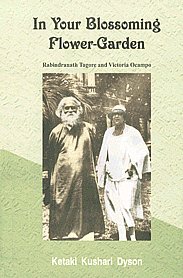
Two Women Writers of the Bengali Diaspora: Ketaki Kushari Dyson and Dilara Hashem - Sumana Das Sur
Translation | Essay | March 2011The two novels by Ketaki and Dilara that I have chosen to look at closely in this paper may appear more dissimilar than similar, but I have deliberately chosen these two examples to...
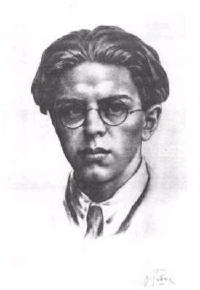
Rabindranath Tagore and Srečko Kosovel: A Joint Perspective in a Disjointed World - Ana Jelnikar
Rabindranath Tagore | Essay | September 2010In the 1920s, at the height of Rabindranath Tagore’s reputation in continental Europe, the Slovenian poet Srečko Kosovel wrote the following poem:
In green India among quiet
trees that bend over blue water
lives Tagore.
...

Tagore’s Message On Religion: What Does it Mean to Me? - Sukhendu Dev
Rabindranath Tagore | Essay | May 2010I have been to this city many times, but only as a visitor, during my long 16 years’ of stay in Britain. This is the first time I am here to do some research for a few months.

Universalism of Tagore: The Specificities of Portuguese Reception - Sovon Sanyal
Rabindranath Tagore | Essay | May 2010The First World War had just been over. Europe wasn’t yet out of its stupor. Portugal was passing through one of its most turbulent periods of history.
The Scent of Sunlight: By the way of Introduction - Clinton B. Seely
Jibanananda Das | Essay | April 2010The Fire of the World - Bireshvar Chakravarti translated by
Translations | Essay | January 2010
Utsav-Celebration: Tagore’s Approach to Cultivating the Human Spirit and the Study of Religion - Kathleen M. O'Connell
Rabindranath Tagore | Essay | September 2009Tagore’s original notion of utsav was a celebration of diversity, in which everyone was accommodated; and where both individuals and groups could come together in ever widening circles of inclusion and integration.

Temporality in the Poetry of Jibanananda Das - Faizul Latif Chowdhury
Jibanananda Das | Essay | September 2009Trying to figure out what time is, Saint Augustine toyed with the question: “What did God do before He made heaven and earth?” This denotes man’s inherent incapacity to conceptualize eternity. Our human concept of eternity is not endless; nor is it without a beginning. Jibanananda’s concept of time, too...

Translation: the magical bridge between cultures - Ketaki Kushari Dyson
Translation | Essay | August 2009
Rabindranath Tagore and His Contemporary Relevance - Uma Dasgupta, Anandarup Ray
Rabindranath Tagore | Essay | August 2009Vast changes have occurred in the world in the seventy years since Tagore’s death in 1941. Many of these changes have been profound in their impact. On the positive side, there has been an unimaginable rise in incomes in Asia, particularly in China and India.

“I see by the light of death thy world”: A Study of the Poetry of Rabindranath Tagore and Emily Dickinson - Sumanta K. Bhowmick
Rabindranath Tagore | Essay | August 2009Rabindranath Tagore sailed to England in May 1912 for the third time. At the residence of the British artist William Rothenstein, Yeats read out the translations from Gitanjali to the august audience that included some of the best-known names in the literary fraternity of the day.
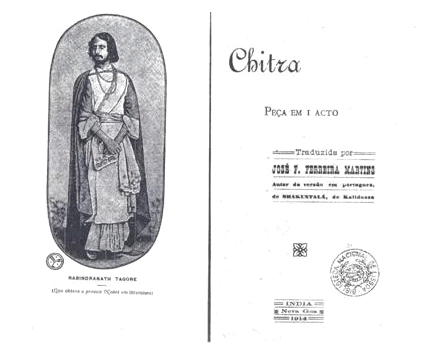
Universalism of Tagore: The Specificities of Portuguese Reception - Sovon Sanyal
Rabindranath Tagore | Essay | May 2009History of Tagore studies in Europe is about to turn hundred years old. The English urge of reception of Rabindranath Tagore became a fever like phenomenon a little ...

Mussolini and Tagore - Kalyan Kundu
Rabindranath Tagore | Essay | May 2009Rabindranath Tagore, the ardent defender of public liberty once made a grievous mistake of accepting the invitation of the fascist dictator Mussolini.
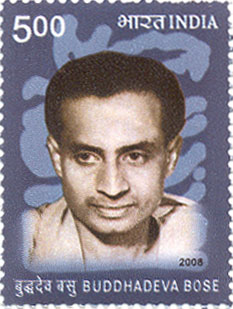
Remembering Buddhadeva Bose, 'The Compleat Writer' - Ketaki Kushari Dyson
Buddhadeva Bose | Essay | May 2009This article is essentially based on a lecture I gave at the invitation of the Sahitya Akademi, Delhi, on 11 December 2008. I have retained the informality of the speaking format, developed a few of the ideas a little more fully, which I couldn’t do at the lecture because of the constraint of time, and made a few additions in the light of discussions that took place after the talk.

Tiger-Savant Long-Tail (Byaghracharya Brihallangul) (Article II) - Bankimchandra Chattopadhyay translated by Sudeshna Kar Barua
Translation | Essay | March 2009A human wedding is of two kinds—the regular and everlasting and the irregular and casual. Of the two it is the regular marriage solemnized by a priest that is accepted. The knot that is tied with a priest as an intermediary is a priest-sanctioned marriage.”
Bathroom - Buddhadeva Bose translated by Hanne-Ruth Thompson
Buddhadeva Bose | Essay | January 2009Translated from the original Bangla "Bathroom", included in Hathat Alor Jholkani, and also in Prabandha-Sankalan by Buddhadeva Bose, Vol.1, Pg.213. This translation was first read at an evening of celebration and readings for the Buddhadeva Bose centenary which took place on May 16, 2008 at the Nehru Centre, London, UK.
Rabindranath Tagore and Hungarian Politics: An Essay by Imre Bangha - Imre Bangha
Rabindranath Tagore | Essay | September 2008
In Phalgun, One Night (Rabindranath Tagore in Finland) - Hannele Pohjanmies
Buddhadeva Bose | Essay | May 2008One night in the Land of All-I-Have-Found1 I happened to meet the poet Buddhadeva Bose. “O hi, I was hoping to see you, there’s something I want to tell you,” I said to him.
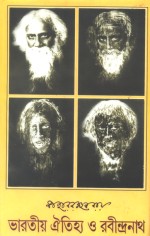
Rabindranath and World-Life (Rabindranath O Bishwajiban) - Niharranjan Ray translated by Narasingha P. Sil
Rabindranath Tagore | Essay | August 2007The two poems of Rabindranath, “Antaryami” (The Interiorized One) and “Jibandebata” (Lord of Life) in the collection titled Chitra reveal a delectable mystery of the poet’s life.
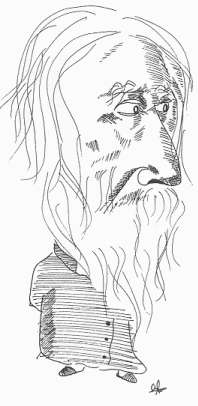
Crisis in Civilization and a Poet's Alternatives: Education as One Alternative Weapon - Nabaneeta Dev Sen
Rabindranath Tagore | Essay | May 2007Under the present circumstances it may not sound like an old fashioned romantic cliché if someone declares today, that the aim of all education is to seek a world where mankind can co-exist with nature in an atmosphere of fearless warmth, trust and freedom.

Buddhadeva Bose's Birth Centenary Year: 2007 - Parabaas
Buddhadeva Bose | Essay | April 2007The Buddhadeva Bose Centenary Committee (BBCC) wishes to call upon the admirers of Buddhadeva Bose residing abroad and outside Kolkata to observe his Birth Centenary year, by organizing commemorative activities in their own areas, in any manner they can.

Translation as Recognition - Indira Chowdhury
Translation | Essay | March 2007In this essay I shall try to describe what translating the novel Pratham Pratisruti by Ashapurna Debi meant for me. The text engrossed me deeply for many years, compelling me to examine many preconceived notions....

Bengali Gastronomy - Buddhadeva Bose translated by Buddhadeva Bose
Buddhadeva Bose | Essay | October 2005Translated by the author himself from the original Bengali Bhojon-shilpi Bangali. The translation has been published in the daily newspaper The Hindusthan Standard of Calcutta.
- কীভাবে লেখা পাঠাবেন তা জানতে এখানে ক্লিক করুন | "পরবাস"-এ প্রকাশিত রচনার দায়িত্ব সংশ্লিষ্ট রচনাকারের/রচনাকারদের। "পরবাস"-এ বেরোনো কোনো লেখার মধ্যে দিয়ে যে মত প্রকাশ করা হয়েছে তা লেখকের/লেখকদের নিজস্ব। তজ্জনিত কোন ক্ষয়ক্ষতির জন্য "পরবাস"-এর প্রকাশক ও সম্পাদকরা দায়ী নন। | Email: parabaas@parabaas.com | Sign up for Parabaas updates | © 1997-2025 Parabaas Inc. All rights reserved. | About Us